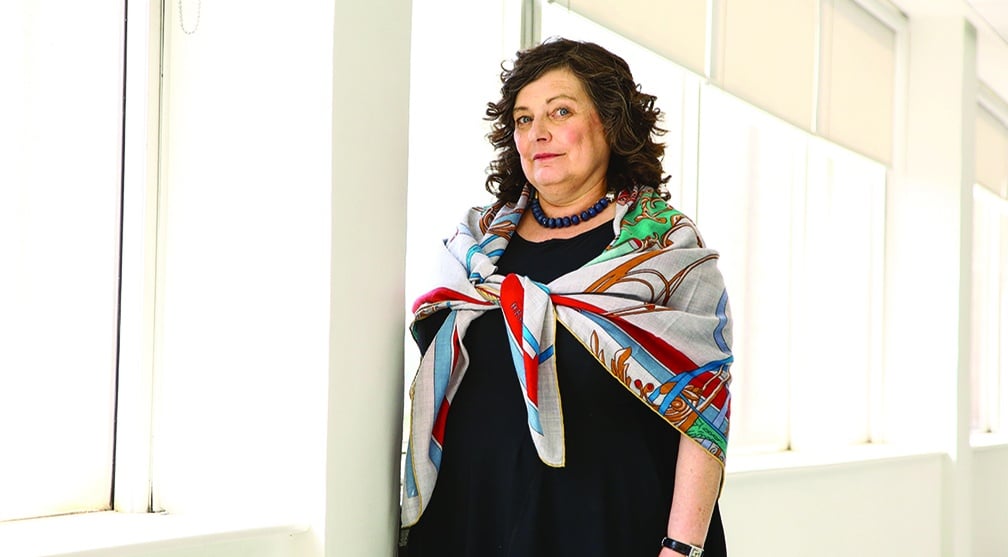LONDON: Gazing out from the new offices of online bank Starling, Anne Boden sees the familiar, modest surroundings of the Welsh capital Cardiff rather than the skyscrapers of London's City financial district. "We have great universities in Cardiff, and we have great talents here, we're using that talent to create something that's really special for the customers," say Boden. Boden is the head of Starling, which has just opened the Cardiff site, where about half of its 1,800 employees will be based. With almost three million customers and eight percent of UK business banking market share, Starling has managed to carve out a niche in the hugely competitive world of fintech, and, unlike many competitors, turn a profit.
Born into a modest family 42 miles (67 kilometers) from Cardiff in Swansea where she also studied, Boden calls the bank she started in 2014 "a force to be reckoned with". The same description could apply to Boden who regularly describes herself as a "five-foot (1.5-metre) Welsh woman". In the very masculine world of finance, she defends the position of women business leaders and has been put in charge of a government study group on the matter.
"I'm not a typical banker," says Boden, who wants to offer her customers an experience different from that of the traditional banks she worked for until 2013. But in the wake of the 2008 financial crisis, the former Royal Bank of Scotland (RBS) employee had to set herself apart from all the other entrepreneurs seeking to move on from the old world of finance. Already aged over 50, Boden teamed up with Tom Blomfield, a young Oxford University graduate typical of the world of London startups. But in 2015, Blomfield jumped ship with much of Starling's management team just months before its launch to start rival bank Monzo.
Boden writes in her autobiography about her struggle to keep control of Starling and of her vision: a profitable but "responsible" online bank with top-notch customer service that respects the environment. Starling says it uses only renewable energy and recycled plastic. The bank's market capitalization of £2 billion ($2.5 billion, 2.3 billion euros) is far behind Revolut ($33 billion) or Monzo ($4.5 billion), but often beats its competitors for customer satisfaction.
'No crypto gimmicks'
"It's friendly rivalry, I think," Boden says of her relationship today with the big names of British fintech, while not shy of criticizing them and vaunting Starling's more prudent approach. In her book, "Banking On It: How I Disrupted an Industry", she describes the tedious job of getting Starling a banking license-the Holy Grail that permits a bank to use customers' deposits to issue loans-to set Starling apart from some of its competitors in the UK. Fintech giant Revolut is in fact not recognized as a bank in the UK, although it does have that status in several other European countries, and the financial press regularly reports on its efforts to obtain a license. Without the license, banking startups struggle to turn a profit.
"Some of these new fintechs are trying to find ways of monetizing their customer base and are coming up with trading apps or crypto as a way of earning a revenue," she says. "We are not seeking gimmicks, we're all about providing what the costumers really want." Although she won't answer questions about a possible stock market flotation initially planned for the end of the year or early 2023, Boden happily discusses the bank's future.
"If I look forward to five years' time, people will be talking about Starling as being this global technology company that owns a very successful bank in the UK and it all started here in Cardiff," she says. "We go towards a future where tech is pervasive and things are happening all around you, banks have to respond," she says. "Instead of paying your insurance bill by the quarter perhaps you'll pay by the minute. Perhaps you'll pay for your self-driving car as you self-drive down the road." - AFP











